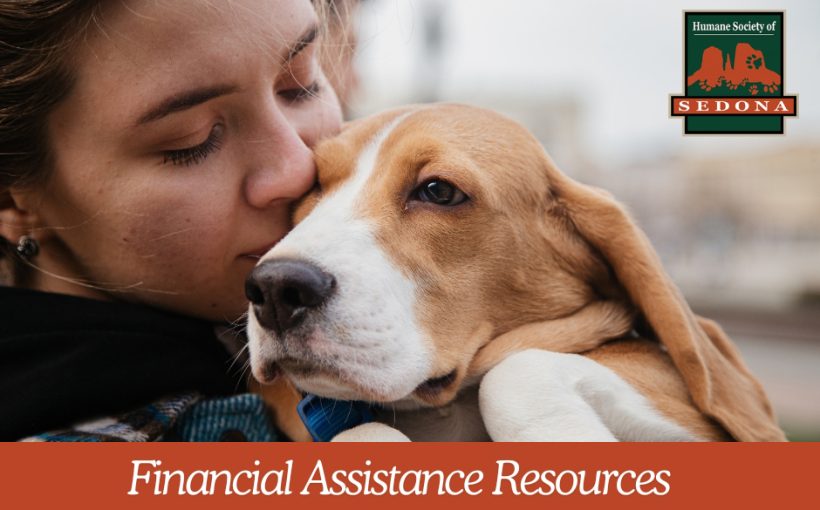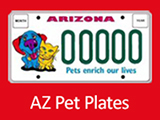Finding help with vet bills
-
Be aware that few, if any, organizations will pay for ongoing medication that pets will need for extended periods of time.
- It is unlikely that any one organization or program will pay for expensive procedures in their entirety. So be sure to contact as many sources as possible. The grants might be very small, but they can add up if you get help from multiple sources.
- Try negotiating with your veterinary clinic for a better price or the ability to finance the cost of care over time. Also, consider getting price comparisons from other providers. CareCredit provides financing for veterinary care; check its website to see whether you qualify.
- If possible, contact any possible sources of pet financial assistance before procedures are done. Few sources are willing to pay bills for care that has already been provided.
- Most organizations take applications only through email or online forms. If you aren ‘t computer-savvy, find a friend, relative, or neighbor to help you.
- The inclusion of services, organizations, or programs listed below is NOT an endorsement or recommendation. We cannot vouch for these programs, and you should check them out yourself before asking for their aid.
Raise Vet Care Costs with Waggle
It is a revolutionary, not-for-profit crowdfunding model with a goal to create a world where no pet is euthanized for financial reasons. Waggle is the trusted safety net that individuals and organizations turn to when they lack the funds to cover essential veterinary treatment for a sick or injured pet. Money should never stand between pets and their right to critical care. Waggle is an invaluable resource for you and your sick or injured pet if you are facing a hard financial decision when it comes to their veterinary care.
Visit their website to learn more: https://www.waggle.org/
National programs for pet financial aid:
- RedRover (formerly United Animal Nations) works to bring animals from crisis to care and to strengthen the bond between people and animals.
- The Pet Fund provides financial assistance to people with pets who need vet care. They also provide information about preventive care, pet insurance programs, and financial services to help prevent future emergencies.
- Paws 4 A Cure is an all-volunteer 501(c)(3) nonprofit organization that provides pet financial assistance throughout the United States to those who cannot afford veterinary care for their beloved pets. Paws 4 A Cure helps dogs and cats with all illnesses and injuries and does not discriminate against breed, age, or diagnosis. Please visit the Ask For Help page to read the guidelines and policies.
- The mission of the Pet Lifeline Program is to help provide pet financial assistance to people who are struggling to cover their veterinary bills. The program is exclusively for non-basic, non-urgent care cases only. Go to the Pet News Daily website for more details.
Dog breed-specific resources
- Corgi
- Doberman (special needs)
- Great Pyrenees
- Keeshond
- Pit bull terrier-type dogs
- Westie
Disease-specific resources
- The Animal Cancer Therapy Subsidization Society is dedicated to bringing affordable modern veterinary cancer treatment to veterinary cancer patients in Alberta, Canada. They provide subsidies to people with pets, as well as educate the public and veterinarians on the availability, uses, and benefits of advanced cancer therapies in the treatment of veterinary cancers.
- The Live Like Roo Foundation offers grants, care packages, special experiences, and more to help pets and their families get through cancer diagnoses.
- Frankie’s Friends is a nonprofit offering financial assistance for veterinary specialty or lifesaving emergency care for pets.
Resources for those with assistance dogs:
- The International Association of Assistance Dog Partners (IAADP) has established an emergency veterinary fund to provide financial aid to U.S. IAADP partner members whose assistance dogs require high-cost veterinary intervention beyond their ability to pay.
- The California Department of Social Services Assistance Dog Special Allowance (ADSA) Program provides a monthly payment of $50 to eligible individuals who use a guide, signal, or service dog to help them with needs related to their physical disabilities. The allowance is to help pay the costs of food, grooming, and health care for the dogs. This program, available only to residents of California, will provide these funds monthly toward the care of registered service dogs. Call 916-657-2628.
Resources for animal welfare groups:
- The Second Chance Fund, operated by the American Humane Association, financially assists agencies that rescue, care for, and rehome abused or neglected animals. (To qualify, your organization must be a member of the American Humane Association.)
Other possible sources of pet financial assistance:
- Most veterinary schools treat pets at a reduced cost. The American Veterinary Medical Association can help you locate accredited vet schools.
- Decorate a few donation coin cans with an appealing photo of your pet and a brief explanation that money is needed for medical care. Ask your veterinarian if you can put one in the office. Put one out on your desk at work, and ask a friend or two to do the same. This sounds old-fashioned, but it really works!
- A small fundraiser, such as a yard sale or bake sale, can raise significant funds if it is well planned. Ask friends and neighbors to help; it usually takes just a couple of people to pull it off. Some tips:
- Yard sale: Ask neighbors, family, co-workers, and friends to contribute items. The event can be publicized in the local newspapers and by posting flyers around town. You’ll need a place to store the items, and there is some time involved in planning, publicizing, and organizing. But a single neighborhood yard sale can raise several hundred dollars for pet financial assistance.
- Bake sale: Another simple, low-risk way to raise money is to organize a bake sale. Ask neighbors, family, co-workers, and friends to contribute baked items. To be successful, the bake sale must be in a high-traffic area, where many people will pass by.
- Create a Facebook page to get the word out online about your pet’s needs.
- Consider purchasing pet insurance for your pets.
- The Humane Society of the United States does not provide direct pet financial assistance, but it does information about what to do if you’re having trouble affording vet care.
- If your housing situation has changed, you can find pet-friendly rentals across the United States via Rentable. If you are facing foreclosure, please see this helpful resource about foreclosure from American Humane.
- Search for a pet food pantry near you on pets.findhelp.com.
Sourced from our rescue partner, Best Friends:https://bestfriends.org/pet-care-resources/pet-financial-assistance-resources#NATIONAL1














